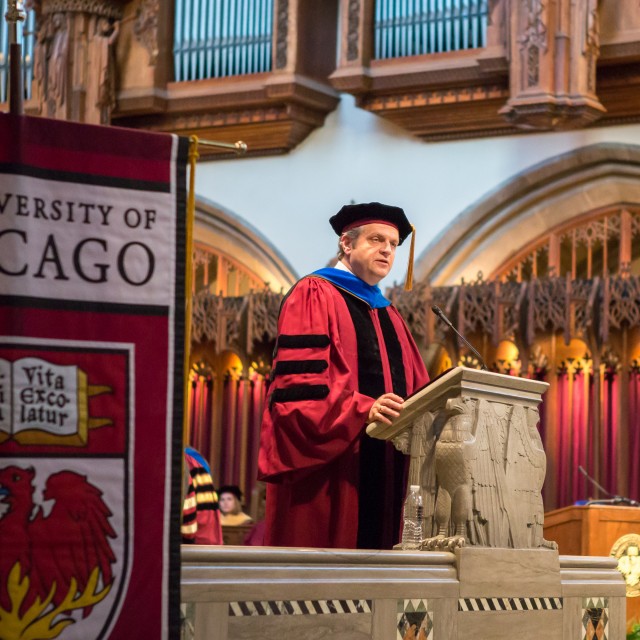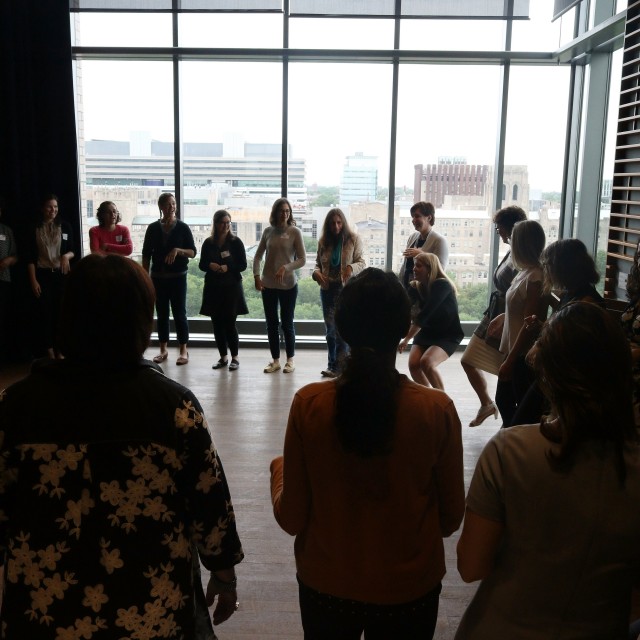Appointment at the rank of Assistant Professor on the BSD Track is normally made for a 4-year term. Learn more about the benefits and resources available to new faculty:
Information for beginning assistant professors on the BSD track
Although the promotion and tenure decision may seem very far away now, it actually arrives quickly. For that reason it is essential to 'hit the ground running' on arrival. We have no quota on tenured faculty, in principle all assistant professors can be tenured, and our success rate is quite high -- but failures are typically associated with not taking prompt action to develop one's career.
Ask your department when materials will be due in its office to meet the deadlines. This is often ~2-4 months in advance, and varies by department and time of year.
The end dates are subject to the University’s stop the clock policy: Stopping the Clock on Review for Promotion.
If lab or office facilities are being renovated for your use, it is prudent to check periodically on the progress and estimated completion date of the renovations even if you’ve been promised a specific completion date. Unforeseen things happen! Renovations uncover missing utilities or abatement hazards. City inspectors go on strike, or the permit process stalls.
Biological Sciences Division’s official statement of criteria and process for promotion and tenure is at Official Statement of Requirements | Guidelines | Criteria, summarized at a grid summary of faculty criteria. Material on “the BSD track” will be pertinent to you.
A majority of the assistant professors with whom I met say: “Outstanding trainees are everything!” That is, it is critically important to have outstanding people, be they graduate students, College students, postdocs, or technicians, working in your lab as soon as your lab is ready to go. [An alternative opinion from them is to build slowly so that you have plenty of time to do experiments yourself. Except for the extremely lucky, you are the best person you'll have in your lab for some time. It is critical that you provide yourself time to work.] If you agree with the first view, be aware that graduate students often choose their rotations at a particular time of year and, if you miss that time, you will need to wait until the following year. The timing of rotation choice will vary among graduate programs. Thus, you should contact the leadership of any programs from which you may draw graduate students, and ask about this. The assistant professors cautioned, however, that taking on a bad trainee is the worst mistake one can make. It is best to be highly selective.
If you are expecting to use equipment outside your own lab, it would be prudent to investigate in advance. Your colleagues are typically very generous about sharing equipment, but not so good about advertising its presence and availability.
If you are expecting to use an established Core or shared research facility (http://osrf.bsd.uchicago.edu/ ), you should discuss its use with its director, manager, or other users. This will help you form clear expectations about its availability and cost.
Teaching and institutional citizenship do count at UChicago, no matter what “they” told you during recruiting. Hopefully you will find interaction with students, trainees, and colleagues to be a stimulating and rewarding component of your faculty position. Just take care to arrange activities that you find satisfying and the institution finds valuable. Most units have a policy of relieving new faculty of some/all teaching at first and introducing it gradually; check with the chair of your department if you have questions.
Many activities, including the hiring of lab personnel, obtaining biosafety, animal use, and human subject approvals, and applying for grants can begin in advance of your arrival and be complete on Day 1. Contact your department-to-be to facilitate this, and in any event discuss ‘special circumstances’ (e.g., exotic pathogens or animal care needs).



